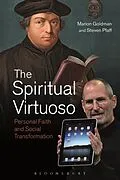Marion Goldman and Steven Pfaff define a spiritual virtuoso as someone who works toward personal purification and a sense of holiness with the same perseverance and intensity that virtuosi strive to excel in the arts or athletics. Since the Protestant Reformation, activist virtuosi have come together in large and small social movements to redefine the meanings of spiritual practice, support religious equality, and transform a wide range of social institutions. Tracing the impact of spiritual virtuosi from the sixteenth century Reformation through the nineteenth-century Anti-Slavery Movement to the twentieth-century Human Potential Movement and beyond, Marion Goldman and Steven Pfaff explore how personal virtuosity can become a social force. Martin Luther began to expand spiritual possibilities in the West when he charted paths that did not require the Church's intercession between the individual and God. He believed that everyone could and should reach toward sacred truths and transcendent moments. Over the centuries, millions of people have built on his innovations and embarked on spiritual quests that offer new possibilities for sacred relationships and social change.
Autorentext
Marion Goldman is Professor Emeritus of Sociology and Religious Studies at the University of Oregon, USA.
Inhalt
Acknowledgments
List of Illustrations
1. Introduction: Spiritual Virtuosity
2. Virtuosity and Spiritual Privilege
3. Virtuosi and Collective Action
4. Luther and the Virtuoso Ethic
5. Grimke, Weld, and the Antislavery Movement
6. Corita and the Human Potential Movement
7. Conclusion: The Future of Virtuosity
Bibliography
Index
